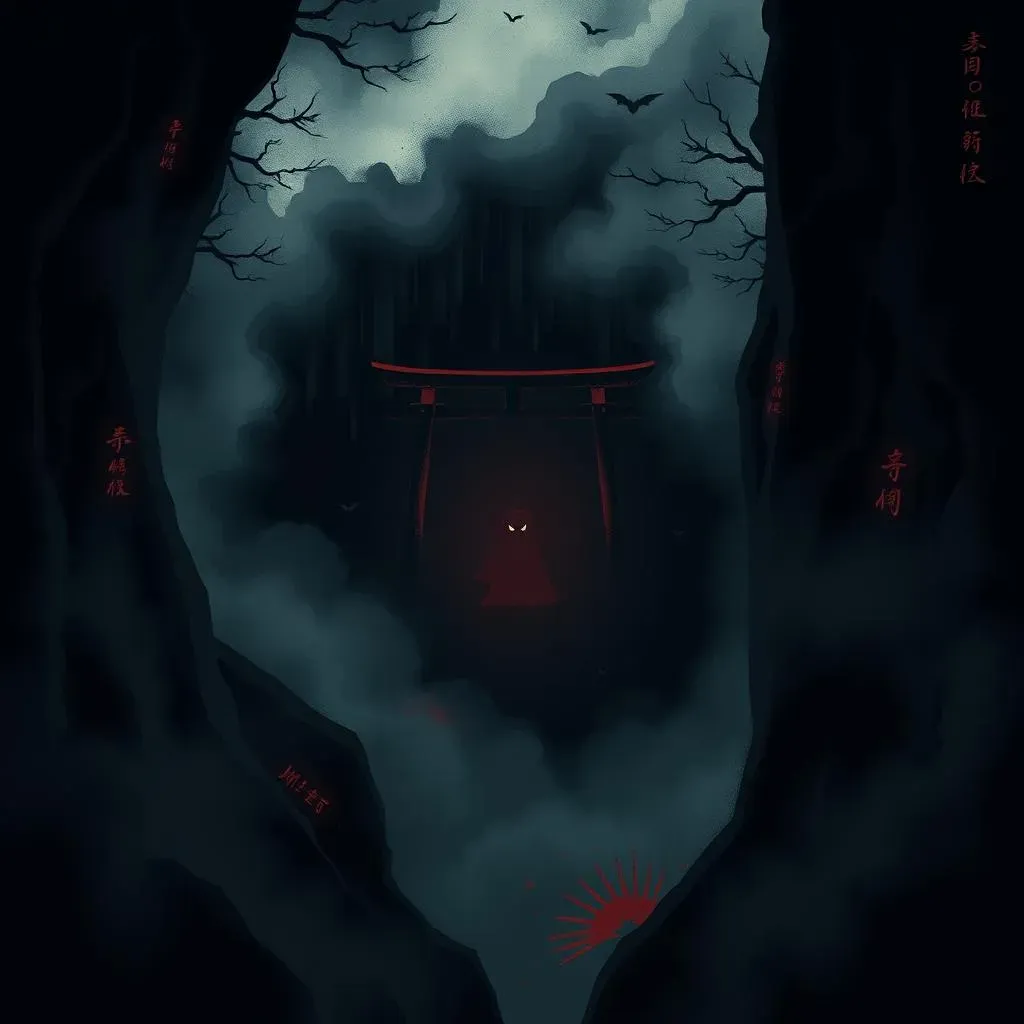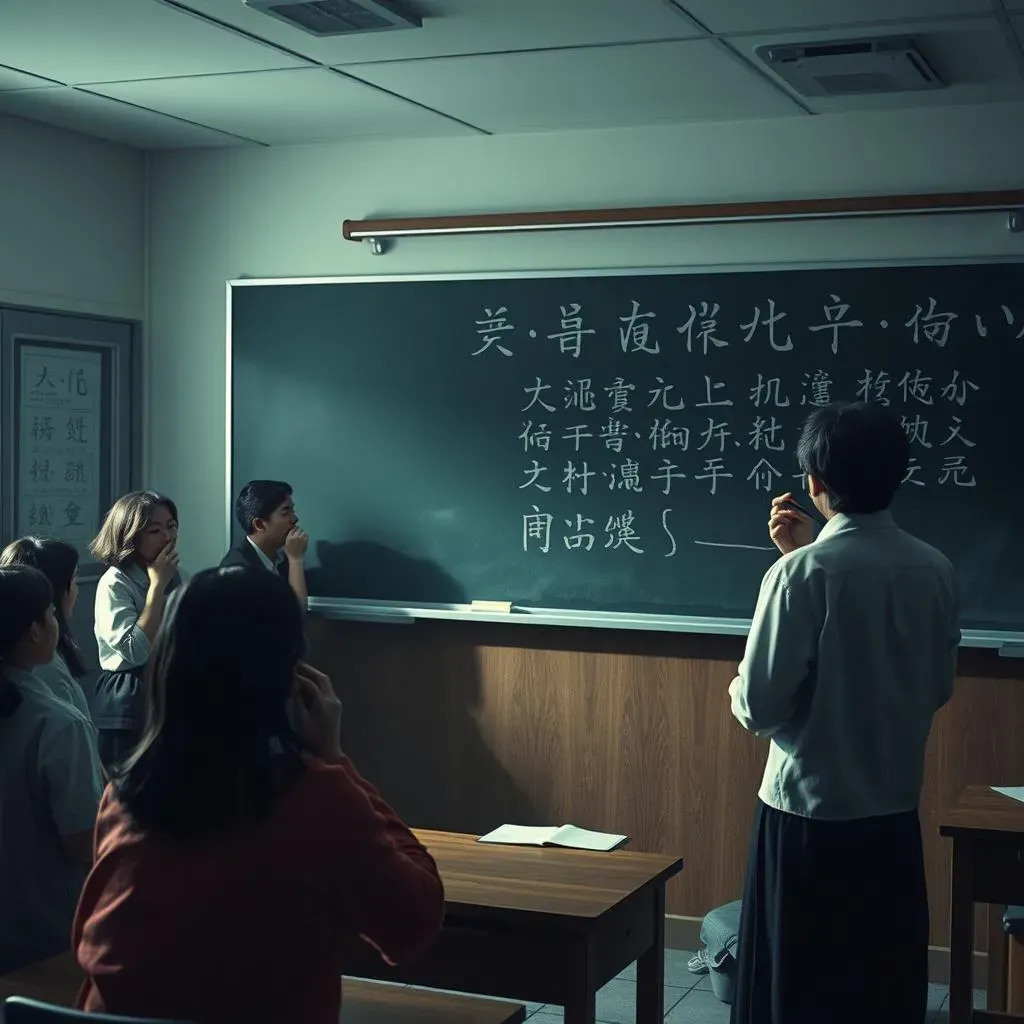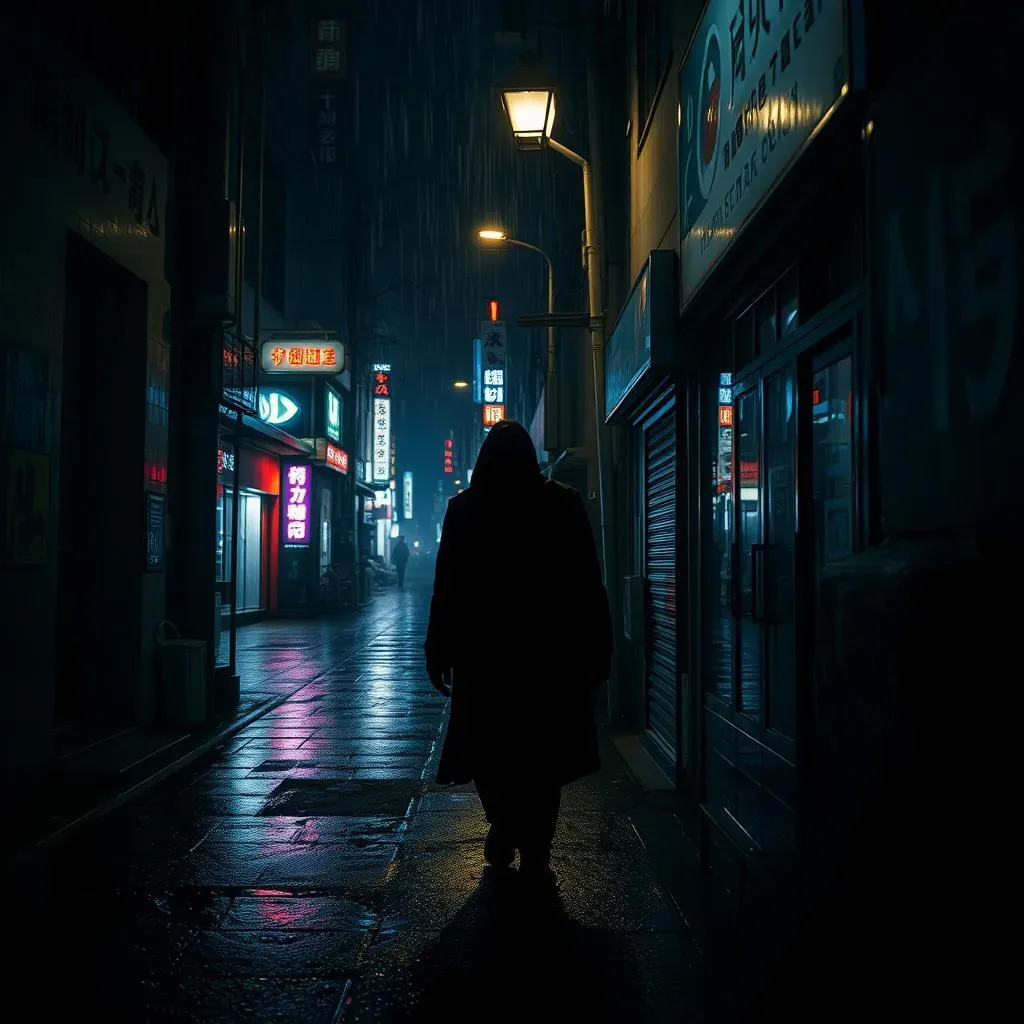Table of Contents
Ever felt a chill run down your spine for no reason? Maybe you just stumbled upon a Japanese urban legend. Japan, a land of ancient traditions and cutting-edge tech, is also fertile ground for some seriously creepy stories. Forget friendly ghosts; we are talking about vengeful spirits, bizarre creatures lurking in the shadows, and everyday places twisted into scenes of horror. These aren't your grandma's fairy tales. We're diving deep into the unsettling world of Japanese urban legends 50, if you dare. From haunted train stations to cursed websites, these stories tap into our deepest fears and anxieties, reflecting the darker side of modern society. Ready to explore the chilling secrets hidden in plain sight? Join us as we unravel 50 of the most terrifying tales from Japan, separating fact from fiction and exploring the cultural roots of these enduring myths. Get ready to keep the lights on tonight.
Unmasking 5 of the Most Terrifying Japanese Urban Legends
Unmasking 5 of the Most Terrifying Japanese Urban Legends
The Kuchisake-Onna: Slit-Mouthed Woman
Let's kick things off with a classic, shall we? The Kuchisake-Onna, or Slit-Mouthed Woman, is probably one of the most recognizable Japanese urban legends, even outside of Japan. Imagine walking home alone at night, and a woman in a surgical mask approaches you. In Japan, masks aren't unusual, especially during flu season, so you might not think much of it at first. But then she asks you, "Am I beautiful?" (Watashi kirei?). No matter how you answer, things go south fast. If you say "no," she kills you on the spot. If you say "yes," she removes her mask to reveal a Glasgow smile – a mouth slit ear to ear – and asks again, "How about now?" (Kore demo?). Suddenly, your initial answer doesn't matter anymore. Run. Just run.
Teke Teke: The Torso with a Grudge
Next up, meet Teke Teke. This one is pure nightmare fuel. Legend has it she was a woman or schoolgirl who fell onto train tracks and was cut in half by an oncoming train. Now, her vengeful spirit crawls on her elbows – or sometimes hands – dragging her torso and making a "teke teke" sound as she moves. If Teke Teke catches you, she'll slice you in half with a scythe or her claws, making you just like her. The speed of Teke Teke is terrifying; she's said to be incredibly fast, especially on all fours. Moral of the story? Stay away from train tracks, especially late at night, and listen for that tell-tale "teke teke" sound. It might just save your life, or what's left of it.
Legend Name | Key Fear Factor | Beware Of |
|---|---|---|
Kuchisake-Onna | Unavoidable encounter, gruesome appearance, inescapable question | Women in surgical masks asking "Am I beautiful?" |
Teke Teke | Relentless pursuit, horrifying origin, being sliced in half | Train tracks, dragging sounds, late nights |
Delving into the Depths: Exploring 50 Japanese Urban Legends
Delving into the Depths: Exploring 50 Japanese Urban Legends
Beyond the Surface: More Than Just Slit Mouths
Kuchisake-Onna and Teke Teke are just the tip of the iceberg. Seriously, the world of Japanese urban legends goes way deeper, like Mariana Trench deep. We've barely scratched the surface with those two big names. Think of it like this: every culture has its scary stories, right? But Japan? They've turned it into an art form. There's a whole universe of creepy crawlies, ghostly encounters, and bizarre happenings lurking in every corner of the country, from bustling cities to quiet countryside towns. Fifty legends? That’s just a sampler platter. We could probably spend a year just listing them all and still not be done.
A Wild World of Weirdness: From Schools to Screens
What makes these 50 legends so fascinating is their sheer variety. You've got your classic schoolhouse hauntings – because what's creepier than being stuck in school forever, even in the afterlife? Then there are the tech terrors – think cursed websites and vengeful spirits hitching a ride on your smartphone. Seriously, Japan was ahead of the curve on internet horror way before your grandma learned to use Facebook. And let's not forget the nature spirits gone rogue, the unsettling doppelgangers, and the everyday objects suddenly imbued with malevolent intent. It's a mixed bag of scares, guaranteed to keep you looking over your shoulder no matter where you are.
Category | Example Legend Type | Common Themes |
|---|---|---|
School Legends | Hanako-san of the Toilet | Haunted school buildings, vengeful student spirits, forbidden rituals |
Tech/Internet Legends | Kunekune | Digital curses, mysterious online entities, dangers of the web |
Yōkai/Monster Legends | Kappa | Traditional folklore creatures, nature spirits, warnings about the wild |
Japanese Urban Legends 50: Fact or Fiction? Separating Myth from Reality
Japanese Urban Legends 50: Fact or Fiction? Separating Myth from Reality
Whispers in the Dark: Unpacking the "Truth"
Alright, let's get real for a sec. Japanese urban legends 50 – are they legit spooky happenings ripped from reality, or just campfire tales spun way out of control? The answer, like most things in life, is a bit messy. It's not as simple as saying "ghosts are real" or "it's all made up." These stories are fascinating because they often blur the line, taking real-world anxieties, cultural fears, and maybe, just maybe, a dash of something unexplained, and twisting them into something truly terrifying. Think of it like this: a grain of truth, a whole lot of imagination, and boom – you've got a legend that keeps people up at night.
Roots in Reality: Where Do Legends Sprout From?
So, where do these Japanese urban legends 50 even come from? Well, they don't just materialize out of thin air, no matter how much we might like to believe in vengeful spirits. Often, these stories are born from very real places – societal anxieties, historical events, even misunderstandings of everyday phenomena. Take the Kuchisake-Onna, for example. Some theories link her origin to rumors of women undergoing botched cosmetic surgery in the past. Suddenly, a scary story about a woman with a slit mouth taps into very real fears about appearance and body image. Or consider Teke Teke. A gruesome train accident is a horrifyingly real possibility in a densely populated country like Japan. The legend amplifies that fear, turning it into a supernatural threat. See the pattern? Real fears, amplified by folklore.
Legend Element | Possible Real-World Root |
|---|---|
Gruesome Appearance (e.g., Slit Mouth, mangled body) | Fears of disfigurement, accidents, or societal outcasts |
Relentless Pursuit (e.g., Teke Teke's speed) | Anxiety about inescapable threats, feeling powerless |
Modern Settings (e.g., internet curses) | Fear of technology, the unknown dangers of the digital world |
It's also worth remembering that Japan has a rich history of folklore and ghost stories, way before the internet and smartphones. These older traditions often blend with modern anxieties to create new urban legends. Think about Yōkai, those traditional Japanese monsters and spirits. They've been around for centuries, adapting and morphing with the times. Some urban legends are basically Yōkai for the modern age, updated for a world of trains, schools, and smartphones. It's like taking ancient fears and giving them a fresh, terrifying coat of paint.
From Kitchen to Classroom: Japanese Urban Legends 50 and Their Cultural Impact
From Kitchen to Classroom: Japanese Urban Legends 50 and Their Cultural Impact
More Than Just Scares: Legends as Cultural Glue
But Japanese urban legends 50 are not just about cheap thrills and jump scares, you know? They are woven into the fabric of Japanese culture, popping up in the most unexpected places. Think about it – these stories aren't just told around campfires (though they are great for that). They are whispered in school hallways, shared among friends after school, and even make their way into classrooms as cautionary tales. From casual chats in the kitchen to serious discussions in academic settings, these legends act as a kind of cultural glue, reflecting shared anxieties, moral lessons, and a uniquely Japanese way of looking at the world. They are more than just spooky stories; they are a living, breathing part of the culture.
Consider how these legends are passed down. It's not always through formal books or official channels. Often, it’s word-of-mouth, evolving with each retelling, adapting to new social contexts and technologies. Think of kids daring each other to try summoning rituals based on urban legends, or teenagers sharing creepy videos online, adding their own spin to classic tales. This constant reinterpretation and sharing keeps the legends alive and relevant, ensuring they continue to resonate with each new generation. They are constantly being remixed and reimagined, proving their enduring power.
Cultural Sphere | Legend Manifestation | Impact |
|---|---|---|
Education | Teachers using legends to warn about safety (e.g., stranger danger, traffic safety) | Instilling caution, reinforcing social norms |
Entertainment | Movies, anime, manga, video games inspired by urban legends | Popularizing legends, shaping cultural imagination, creating shared references |
Social Interaction | Legends as conversation starters, bonding experiences, tests of courage among peers | Strengthening social bonds, defining group identity, managing fear and anxiety collectively |
Unraveling the Mystery of Japanese Urban Legends 50
So, we've journeyed into the shadowy corners of Japan, exploring a chilling collection of Japanese urban legends 50 strong. From whispers in the school hallways to terrifying tales spreading online, these stories reveal more than just a love for the macabre. They are a reflection of societal anxieties, cultural beliefs, and the ever-present human fascination with the unknown. Whether you believe in Kuchisake-Onna or not, these legends offer a glimpse into the heart of Japanese folklore and the enduring power of storytelling to both terrify and captivate us. Next time you find yourself in a dimly lit alleyway or hear a strange sound in the night, remember, the line between legend and reality might be thinner than you think.
